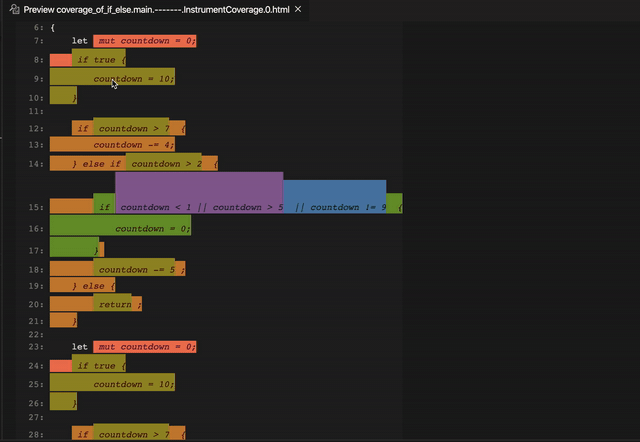Disable use of `--eh-frame-hdr` on wasm32.
Set wasm32's `TargetOptions::eh_frame_header` to false so that we don't pass `--eh-frame-hdr` to `wasm-ld`, which doesn't support that flag.
r? @alexcrichton
Move jointness censoring to proc_macro
Proc-macro API currently exposes jointness in `Punct` tokens. That is,
`+` in `+one` is **non** joint.
Our lexer produces jointness info for all tokens, so we need to censor
it *somewhere*
Previously we did this in a lexer, but it makes more sense to do this
in a proc-macro server.
r? @petrochenkov
inliner: Check for codegen fn attributes compatibility
* Check for target features compatibility
* Check for no_sanitize attribute compatibility
Fixes#76259.
Refactor byteorder to std in rustc_middle
Use std::io::{Read, Write} and {to, from}_{le, be}_bytes methods in
order to remove byteorder from librustc_middle's dependency graph.
do not apply DerefMut on union field
This implements the part of [RFC 2514](https://github.com/rust-lang/rfcs/blob/master/text/2514-union-initialization-and-drop.md) about `DerefMut`. Unlike described in the RFC, we only apply this warning specifically when doing `DerefMut` of a `ManuallyDrop` field; that is really the case we are worried about here.
@matthewjasper suggested I patch `convert_place_derefs_to_mutable` and `convert_place_op_to_mutable` for this, but I could not find anything to do in `convert_place_op_to_mutable` and this is sufficient to make the test pass. However, maybe there are some other cases this misses? I have no familiarity with this code.
This is a breaking change *in theory*, if someone used `ManuallyDrop<T>` in a union field and relied on automatic `DerefMut`. But on stable this means `T: Copy`, so the `ManuallyDrop` is rather pointless.
Cc https://github.com/rust-lang/rust/issues/55149
Issue #74616 tracks a backwards-compatibility hack for certain macros.
This has is implemented by hard-coding the filenames and macro names of
certain code that we want to continue to compile.
However, the initial implementation of the hack was based on the
directory structure when building the crate from its repository (e.g.
`js-sys/src/lib.rs`). When the crate is build as a dependency, it will
include a version number from the clone from the cargo registry (e.g.
`js-sys-0.3.17/src/lib.rs`), which would fail the check.
This commit modifies the backwards-compatibility hack to check that
desired crate name (`js-sys` or `time-macros-impl`) is a prefix of the
proper part of the path.
See https://github.com/rust-lang/rust/issues/76070#issuecomment-687215646
for more details.
This commit adjusts MIR shim construction so that substitutions are
applied to function pointer shims during construction, rather than
during codegen (as determined by `substs_for_mir_body`) - as
substitutions will no longer occur during codegen, function pointer
shims can now be polymorphic without incurring double substitutions.
Signed-off-by: David Wood <david@davidtw.co>
Tools, tests, and experimenting with MIR-derived coverage counters
Leverages the new mir_dump output file in HTML+CSS (from #76074) to visualize coverage code regions
and the MIR features that they came from (including overlapping spans).
See example below.
The `run-make-fulldeps/instrument-coverage` test has been refactored to maximize test coverage and reduce code duplication. The new tests support testing with and without `-Clink-dead-code`, so Rust coverage can be tested on MSVC (which, currently, only works with `link-dead-code` _disabled_).
New tests validate coverage region generation and coverage reports with multiple counters per function. Starting with a simple `if-else` branch tests, coverage tests for each additional syntax type can be added by simply dropping in a new Rust sample program.
Includes a basic, MIR-block-based implementation of coverage injection,
available via `-Zexperimental-coverage`. This implementation has known
flaws and omissions, but is simple enough to validate the new tools and
tests.
The existing `-Zinstrument-coverage` option currently enables
function-level coverage only, which at least appears to generate
accurate coverage reports at that level.
Experimental coverage is not accurate at this time. When branch coverage
works as intended, the `-Zexperimental-coverage` option should be
removed.
This PR replaces the bulk of PR #75828, with the remaining parts of
that PR distributed among other separate and indentpent PRs.
This PR depends on two of those other PRs: #76002, #76003 and #76074
Rust compiler MCP rust-lang/compiler-team#278
Relevant issue: #34701 - Implement support for LLVMs code coverage
instrumentation

r? @tmandry
FYI: @wesleywiser
The non-use occurrence of the return place in var debug info does not
currently inhibit NRVO optimization, but it will fail assertion in
`visit_place` when optimization is performed.
Relax assertion check to allow the return place in var debug info.
This case might be impossible to hit in optimization pipelines as of
now, but can be encountered in customized mir-opt-level=2 pipeline with
copy propagation disabled. For example in:
```
pub fn b(s: String) -> String {
a(s)
}
#[inline]
pub fn a(s: String) -> String {
let x = s;
let y = x;
y
}
```
diagnostics: shorten paths of unique symbols
This is a step towards implementing a fix for #50310, and continuation of the discussion in [Pre-RFC: Nicer Types In Diagnostics - compiler - Rust Internals](https://internals.rust-lang.org/t/pre-rfc-nicer-types-in-diagnostics/11139). Impressed upon me from previous discussion in #21934 that an RFC for this is not needed, and I should just come up with code.
The recent improvements to `use` suggestions that I've contributed have given rise to this implementation. Contrary to previous suggestions, it's rather simple logic, and I believe it only reduces the amount of cognitive load that a developer would need when reading type errors.
-----
If a symbol name can only be imported from one place, and as long as it was not glob-imported anywhere in the current crate, we can trim its printed path to the last component.
This has wide implications on error messages with types, for example, shortening `std::vec::Vec` to just `Vec`, as long as there is no other `Vec` importable from anywhere.
When introducing argument temporaries during inlining, emit storage
marker statements just before the assignment and in the beginning of
the return block.
This ensures that such temporaries will not be considered live across
yield points after inlining inside a generator.
Proc-macro API currently exposes jointness in `Punct` tokens. That is,
`+` in `+one` is **non** joint.
Our lexer produces jointness info for all tokens, so we need to censor
it *somewhere*
Previously we did this in a lexer, but it makes more sense to do this
in a proc-macro server.